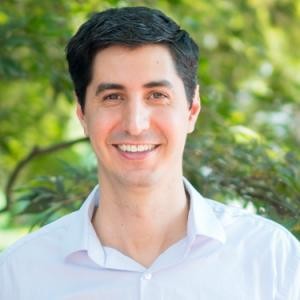Professor James Teherani has won Faculty Early Career Development (CAREER) award from the National Science Foundation (NSF). These five-year grants are the NSF’s most prestigious award in support of the early career-development activities of junior faculty who have the potential to serve as academic role models in research and education and to lead advances in the mission of their organization. The reviewing, award, and selection process is one of the most competitive within the NSF.
James Teherani, assistant professor in the Department of Electrical Engineering, won the CAREER award for his proposal on “Exploiting Many-Particle Physics for Low-Energy Nanoelectronics.” Teherani, who joined the School in 2015, studies emerging semiconductor materials and devices. His group conducts both theoretical and experimental research—from quantum-mechanical simulations to nanoscale fabrication—to explain the physics of novel devices made from a new class of two-dimensional materials that form atomically thin sheets.
His NSF project is focused on experimentally demonstrating the Auger FET, a new type of field-effect transistor based on the many-particle physics of Auger generation that overcomes the energy limitations of conventional transistors, potentially enabling ultra-low-energy electronics. In setting the foundational physics for this innovative device concept, Teherani also hopes to broaden the understanding of Auger generation and recombination processes in quantum structures, which is critical for improving efficiency in LEDs, lasers, and photodetectors. Ultra-low-energy Auger FETs would empower a range of new applications—from long-lasting “micro-dust” sensors and implantable bioelectronics to cell phones that last a month on a single charge—driving a new wave of technological innovation. What’s more, use of low-power Auger FETs in existing applications would considerably decrease energy consumption providing significant benefits to humanity.

